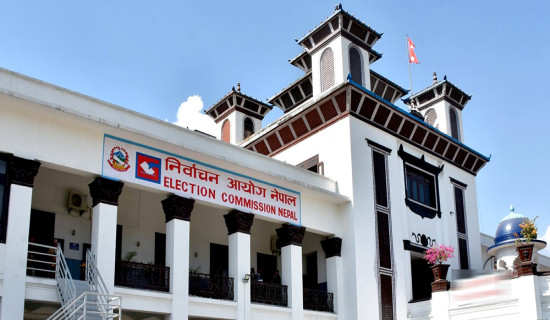- Thursday, 19 February 2026
Focus On Infrastructure Development
It is quite fascinating to read the promising election manifestoes and pledges from different political parties and the independent candidates. While going through the election manifestoes of some major political parties, naturally, one question gets emerged.
Besides other sectors, being a student of civil engineering and construction management, I have paid a little more interest in infrastructure, energy and environment. If we recall the history of parliamentary democracy of last 32 years, most of the time coalition governments have been formed and run sharing out political amiability and compassion among the parties. This time, everyone has been fervent to see something different from the past practices regarding the composition and implementation of election manifestoes.
The usual expectation is, if not additional commitment documents, at least clearance on the position of the coalition status by issuance of joint communiqué on some common infrastructure issues. At best, in-between or among the current coalition partners, they should better sit together to draw the common agenda on some core infrastructure agendas with incorporation of the schedule and cost plan, if possible. If so, it could be a new democratic practice and would be helpful in clearing the air of confusion from day one.
Need
People's immediate infrastructure need is very important. That is why 21 national pride projects of different natures are envisioned and accepted by all. Few of them are on the verge of completion while majority press for crowning achievement. While doing such masterwork, state shouldn’t forget the condition of unheeded but highly utilitarian roads and infrastructure where a large number of travellers are bearing an unnecessary suffering every other day. Dakshinkali-Hetauda and Tokha-Jhor-Trishuli or Nagarjuna-Kakani-Trishuli roads could be the examples. It implies that we shouldn’t lose the moon while counting the stars.
Before announcing too many new cities along the proposed and under-construction highways, and leaving those in the lurch for a prolonged period, existing cities should be equipped with modern facilities. For an example, extensive installation of CCTV cameras to reduce daily thieveries and other crimes along with additional amenities is urgent and a doable task which people desperately require.
Nepal has set a goal to become a middle income nation by 2030 with stable economic growth of around 7-8 per cent and create jobs fast so as to decrease the number of foreign employment seekers gradually. Around 500,000 Nepali youths vacate the country every year for foreign employment. Completion of all pending assignments of national pride projects within five years can be achieved with great teamwork among clients, consultants and the contractors. It is necessary to generate 10,000 MW electricity with an extension of transmission line on par with the production in five years and increase industrial consumption of a large portion of electricity. Building additional regional and international airports and introduction of mass transit system in big cities, portable drinking water supply to all, round-the-year irrigation facility in the large stretch of arable land, setting up of modern hygiene and sanitation system are some achievable targets in which everyone's viewpoints can be coincided and acted upon.
Retrofitting of public and private old buildings with the application of suitable technology to make them earthquake resistant is a central subject for all. We couldn't go pulling down all old buildings which are still serviceable. So, the appropriate retrofitting work, indeed, supports in moving our infrastructure economy stable. Likewise, safe residency scheme in the Terai-Madhes for flood and inundation affected people and for landslide affected ones in the hills and mountains is a pertinent issue to be address. Construction of cable cars in the far-flung or inaccessible locations, tunnels and high bridges at hills and gorges would help to generate robust infrastructure.
Digitisation and the digital economy, landscape marketing with protection of our ancient architecture, culture and values, pioneering of new ideas and technology to mitigate the learning crisis are the concerns in which no one affords to differ.
National interest
If we talk little more on the national interest or foreign policy, we can achieve prosperity based on the doctrine which construes special bonding with the immediate neighbours but friendship with all, and zero tolerance to the foreign interference. Without enduring intimacy in one's own neighbourhood, no nation can become a progressive state at the world stage.
Today, our economy is staggering. A fine balance is needed to avoid the undercurrent of economic resentment. The first seven months after the formation of the new government will be very crucial to drive the country further into its precise path. As we can't turn back the clock, so, early clearance on election manifestoes, pledges and programmess will be an impelling cause to keep the country on the right track.
(Thapa is a former senior engineer of Nepali Army. pthapa.ktm@gmail.com)
















